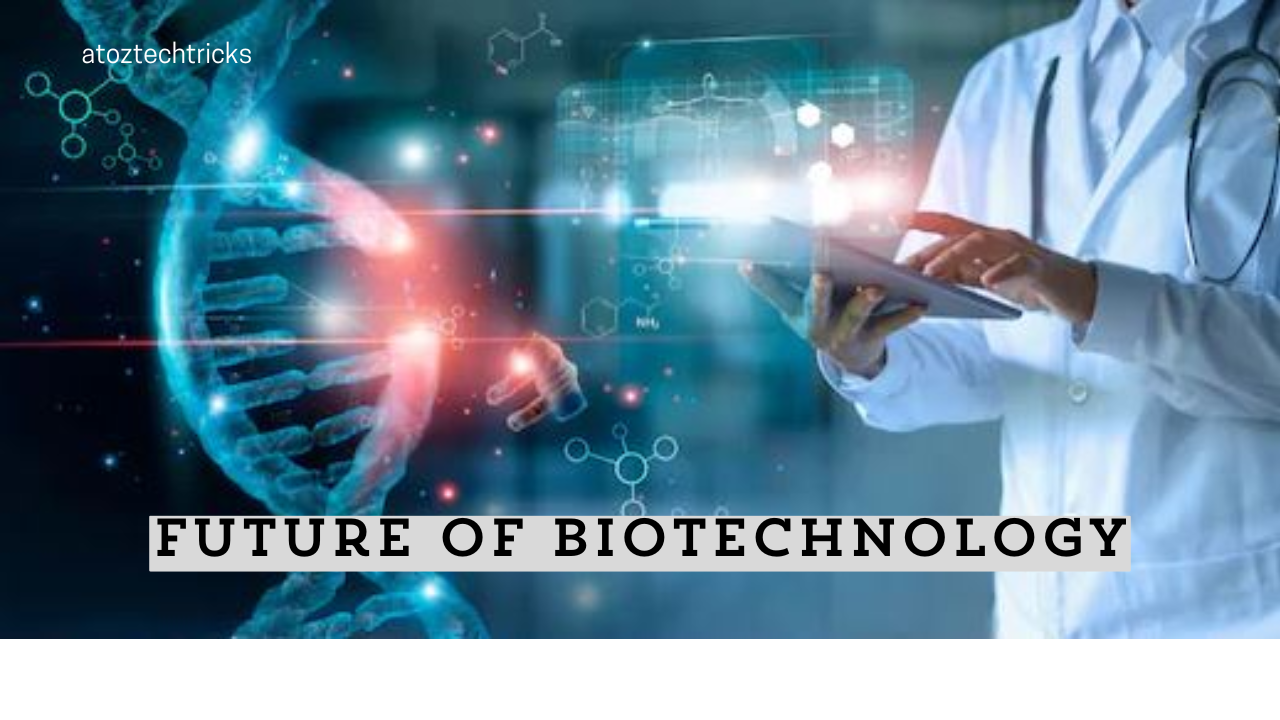Biotechnology is at the forefront of revolutionary changes that have the potential to reshape various aspects of human life. As we stand on the cusp of a new era, the field promises to offer breakthroughs in medicine, agriculture, and environmental conservation. However, these advancements come with significant ethical considerations that must be addressed to ensure that the benefits are distributed equitably and that potential risks are mitigated. This article explores the innovations driving the future of biotechnology and the ethical challenges associated with them.
1. Innovations in Biotechnology
1.1 Genetic Editing and CRISPR
One of the most groundbreaking innovations in biotechnology is genetic editing, particularly the CRISPR-Cas9 technology. CRISPR, which stands for Clustered Regularly Interspaced Short Palindromic Repeats, allows scientists to make precise alterations to the DNA of living organisms. This technology has vast potential applications, including:
- Disease Treatment: CRISPR has shown promise in treating genetic disorders such as cystic fibrosis, muscular dystrophy, and sickle cell anaemia. By correcting mutations at the genetic level, CRISPR could potentially eliminate these conditions.
- Agricultural Enhancements: Genetic editing can improve crop resistance to pests and diseases, enhance nutritional content, and increase yield. This could lead to more sustainable agricultural practices and better food security.
- Environmental Applications: CRISPR can be used to modify the genes of microorganisms to address environmental issues. For example, genetically engineered bacteria could break down pollutants or capture carbon dioxide.
1.2 Synthetic Biology
Synthetic biology involves designing and constructing new biological parts, devices, and systems or redesigning existing biological systems for useful purposes. This field is making strides in:
- Biofuel Production: Synthetic biology can create microorganisms that produce biofuels more efficiently than traditional methods, offering a sustainable alternative to fossil fuels.
- Pharmaceutical Development: Researchers are developing synthetic organisms to produce complex drugs and therapies more cost-effectively. This can accelerate drug discovery and reduce costs.
- Biomanufacturing: Synthetic biology enables the production of materials such as bioplastics and speciality chemicals, reducing reliance on petrochemicals and promoting a circular economy.
1.3 Personalized Medicine
Personalized medicine, also known as precision medicine, tailors medical treatment to the individual characteristics of each patient. Innovations in this area include:
- Genomic Profiling: Advances in genomics allow for detailed profiling of an individual’s genetic makeup, which can guide personalized treatment plans and predict disease susceptibility.
- Targeted Therapies: Drugs can be designed to target specific genetic mutations found in individual patients, improving efficacy and reducing side effects compared to traditional treatments.
- Pharmacogenomics: This field studies how genes affect an individual’s response to drugs, enabling more accurate prescriptions and dosing.
1.4 Regenerative Medicine and Stem Cells
Regenerative medicine aims to repair or replace damaged tissues and organs. Key developments include:
- Stem Cell Therapy: Stem cells have the potential to regenerate damaged tissues and treat conditions such as spinal cord injuries, heart disease, and diabetes. Researchers are exploring ways to enhance the efficacy and safety of stem cell treatments.
- Organ Printing: Advances in 3D printing technology are enabling the creation of bioengineered organs and tissues. While still in the experimental stages, this technology could eventually solve the shortage of donor organs.
1.5 Artificial Intelligence and Biotechnology
Artificial intelligence (AI) is increasingly being integrated into biotechnology research and development. AI can:
- Accelerate Drug Discovery: Machine learning algorithms can analyze vast datasets to identify potential drug candidates and predict their effects, speeding up the drug development process.
- Optimize Research Processes: AI tools can automate repetitive tasks, analyze complex biological data, and provide insights that might be missed by human researchers.
- Enhance Diagnostics: AI-driven diagnostic tools can interpret medical images, genetic data, and patient records more accurately, leading to earlier and more precise diagnoses.
2. Ethical Considerations
2.1 Genetic Privacy and Consent
With the power of genetic editing and genomic profiling comes the responsibility to protect individuals’ genetic information. Ethical concerns include:
- Privacy: Ensuring that genetic data is securely stored and only accessible to authorized individuals is crucial. There are risks of misuse or unauthorized access to sensitive information.
- Informed Consent: Patients must be fully informed about the potential risks and benefits of genetic testing and editing. They should also have the autonomy to make decisions about how their genetic data is used.
2.2 Equity and Access
As biotechnology advances, ensuring equitable access to these innovations is essential:
- Access Disparities: There is a risk that biotechnology advancements may be accessible only to affluent individuals or countries, exacerbating existing inequalities in healthcare and agriculture.
- Global Health Impacts: Efforts must be made to ensure that innovations benefit populations in low- and middle-income countries, where the need for advancements such as affordable treatments and sustainable agriculture is often greatest.
2.3 Ethical Issues in Genetic Modification
The ability to modify genes raises several ethical questions:
- Germline Editing: Editing the genes of embryos or germ cells has the potential to eradicate genetic diseases, but it also raises concerns about the long-term impacts on future generations and potential unintended consequences.
- Designer Babies: The possibility of selecting or modifying traits such as intelligence or physical appearance introduces ethical dilemmas about the extent to which we should alter human characteristics and the potential societal implications of such choices.
2.4 Environmental Impact
Biotechnological advancements can have significant environmental consequences:
- Ecological Risks: The release of genetically modified organisms (GMOs) into the environment could have unintended effects on ecosystems. There is a need for rigorous testing and regulation to assess and manage these risks.
- Biodiversity: The widespread use of genetically engineered crops might impact biodiversity by displacing traditional plant varieties and affecting the wildlife that relies on them.
2.5 Biosecurity and Dual Use
The potential for biotechnological research to be used for harmful purposes is a significant concern:
- Dual Use: Some biotechnological advancements, such as synthetic biology, could be misused for creating biological weapons. It is essential to establish robust safeguards and regulations to prevent misuse.
- Biosecurity: Ensuring that research and development in biotechnology do not pose biosecurity risks is crucial. This includes monitoring laboratory practices and securing sensitive research data.

3. Navigating the Future
3.1 Regulatory Frameworks
Developing comprehensive regulatory frameworks is vital to address the ethical and practical challenges posed by biotechnology:
- International Collaboration: Given the global nature of biotechnology research and its impacts, international cooperation is necessary to establish and enforce standards and regulations.
- Adaptive Regulations: Regulations must be flexible and adaptable to keep pace with rapid advancements in technology while ensuring safety and ethical considerations are met.
3.2 Public Engagement and Education
Engaging the public and educating them about biotechnological advancements is crucial for informed decision-making:
- Transparency: Researchers and policymakers should communicate openly about the goals, risks, and benefits of biotechnological innovations.
- Education: Providing education on biotechnology and its implications can help individuals make informed choices and contribute to public discourse on ethical issues.
3.3 Ethical Research Practices
Promoting ethical research practices involves:
- Ethical Review Boards: Establishing and maintaining ethical review boards to evaluate research proposals and ensure that studies are conducted responsibly.
- Ongoing Ethical Reflection: Researchers and stakeholders should engage in ongoing discussions about the ethical implications of their work and strive to address emerging issues proactively.

The future of biotechnology holds tremendous promise, with innovations poised to revolutionize medicine, agriculture, and environmental conservation. However, the rapid pace of advancement brings with it significant ethical considerations that must be addressed to ensure that these technologies are developed and applied responsibly. By fostering transparent dialogue, engaging in ethical research practices, and implementing robust regulatory frameworks, we can navigate the complexities of biotechnology and harness its potential for the greater good. As we move forward, it is essential to balance innovation with ethical integrity, ensuring that the benefits of biotechnology are realized in a manner that respects both human values and the natural world.
The Impact of Artificial Intelligence on Job Market and Employment



